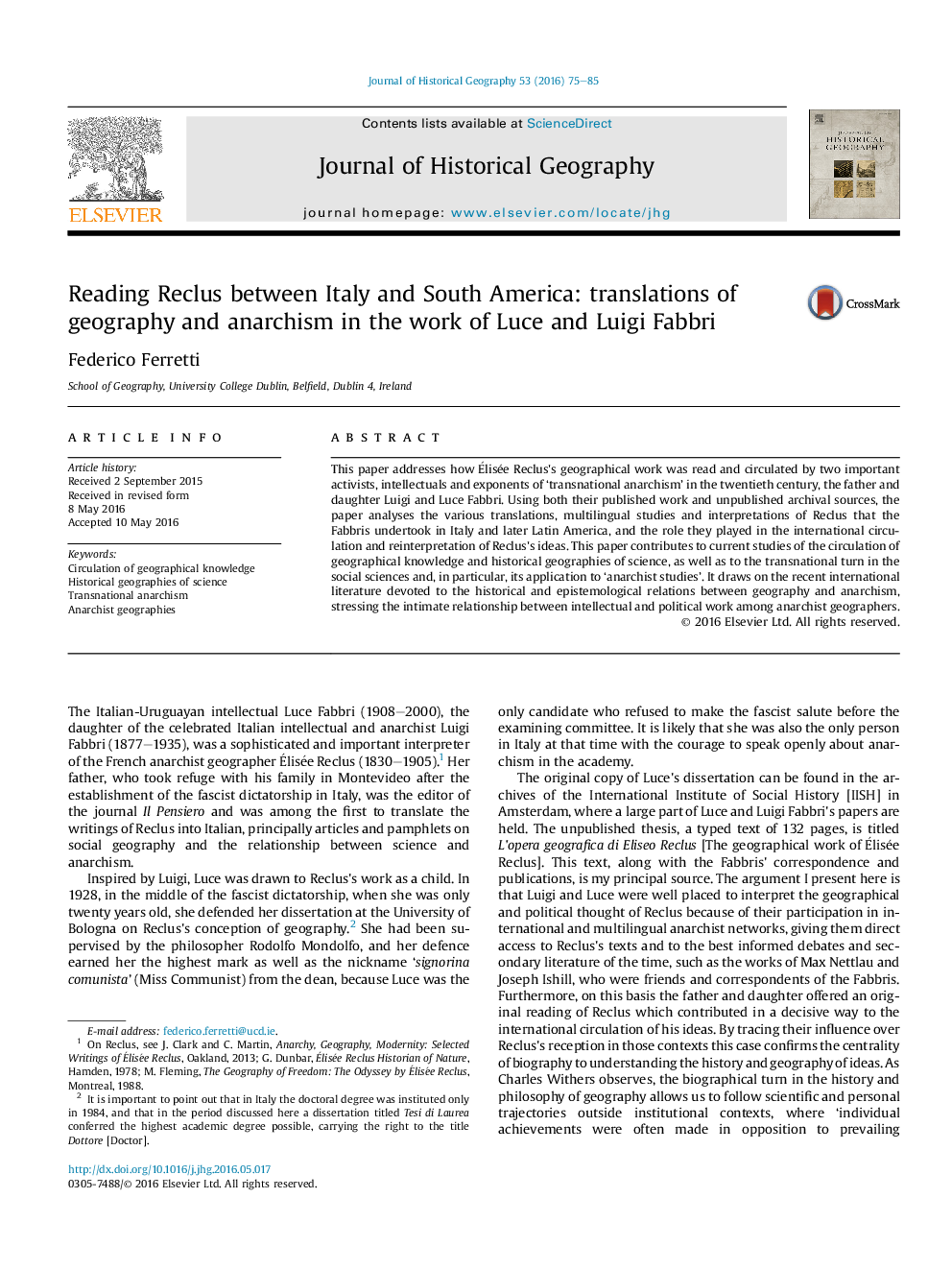| کد مقاله | کد نشریه | سال انتشار | مقاله انگلیسی | نسخه تمام متن |
|---|---|---|---|---|
| 1038883 | 1483972 | 2016 | 11 صفحه PDF | دانلود رایگان |
• Analyses the international circulations and translations of Elisée Reclus's work.
• Focuses on little-known international intellectuals and activists in the early twentieth century.
• Stresses the importance of activist networks for knowledge in transit.
• Addresses the effects of places and contexts in the circulation of ideas.
• Investigates the transnational nature of anarchist geographies.
This paper addresses how Élisée Reclus's geographical work was read and circulated by two important activists, intellectuals and exponents of ‘transnational anarchism’ in the twentieth century, the father and daughter Luigi and Luce Fabbri. Using both their published work and unpublished archival sources, the paper analyses the various translations, multilingual studies and interpretations of Reclus that the Fabbris undertook in Italy and later Latin America, and the role they played in the international circulation and reinterpretation of Reclus's ideas. This paper contributes to current studies of the circulation of geographical knowledge and historical geographies of science, as well as to the transnational turn in the social sciences and, in particular, its application to ‘anarchist studies’. It draws on the recent international literature devoted to the historical and epistemological relations between geography and anarchism, stressing the intimate relationship between intellectual and political work among anarchist geographers.
Journal: Journal of Historical Geography - Volume 53, July 2016, Pages 75–85
